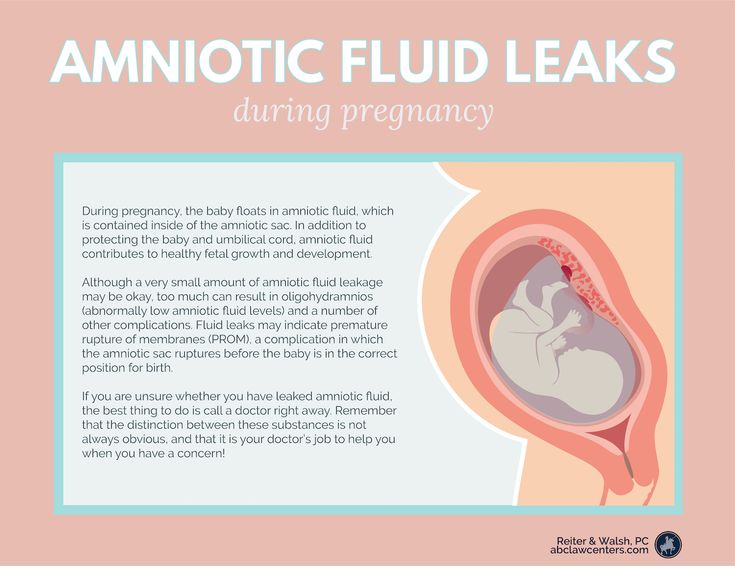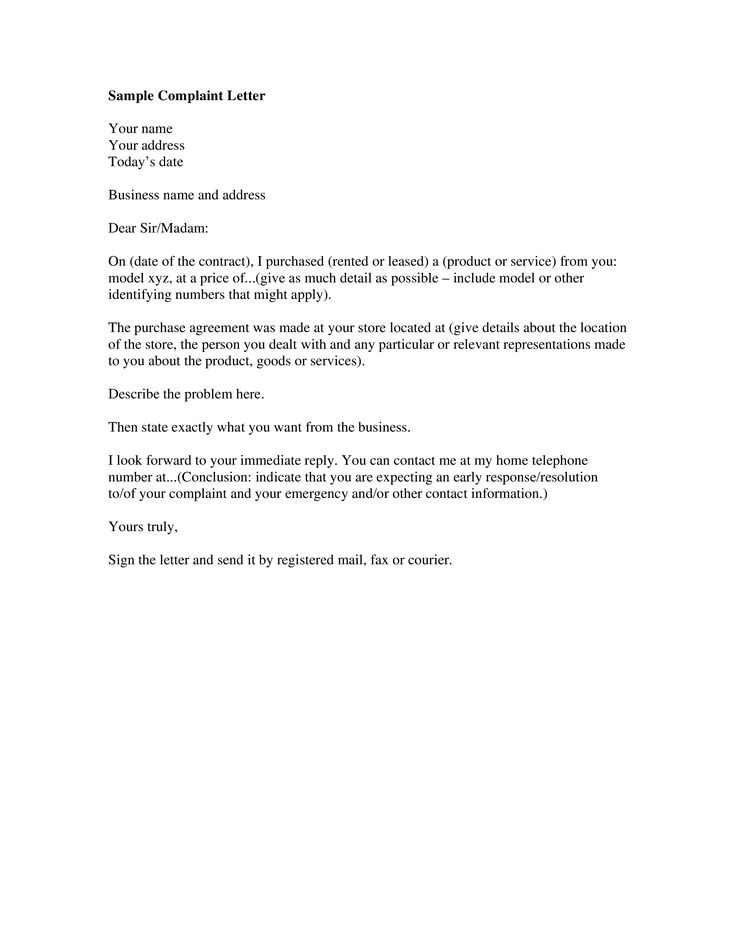Men breastfeeding baby
Can men lactate? Whether men can produce milk
The short answer is no, in general men can't lactate or breastfeed. There are some exceptions, though.
Some transgender men and nonbinary people nurse their babies (and use the term chestfeeding or bodyfeeding rather than breastfeeding). If transgender men have chest/top surgery to alter or remove mammary tissue, it may affect their ability to lactate. Trans women, on the other hand, may have a regimen of feminizing hormonal drugs as treatment, which may help with breast tissue development and the potential for breastfeeding.
Chestfeeding can mean nursing at the breast, but it can also mean using a tube attached to the nipple to feed a baby formula or human milk (supplemental feeding). Chestfeeding may also be used for non-nutritive sucking – in other words, for comfort rather than nutrition.
Can men produce milk?
Men don't normally produce milk. In fact, very few male mammals lactate spontaneously.
There are references in literature to men lactating, and a widely circulated story of a Sri Lankan man who breastfed his baby girl after his wife died. Experts question whether these instances did, in fact, exist. Those that did, they suggest, might have been a result of a rare condition, such as a pituitary tumor (the pituitary is a small gland at the base of the brain that produces hormones).
Newborns (male and female) sometimes lactate because of an excess of hormones from their mom's body. And children of both sexes sometimes lactate a bit when they go through puberty – thanks to a rush of hormones. But these conditions are temporary.
Why can't men lactate?
Men do have the anatomy necessary for lactation (nipples, mammary glands, and pituitary glands). What they don't have are the prolactin levels necessary to stimulate the mammary glands to produce milk. Their mammary tissue also doesn't develop at puberty like it does in females.
While men do produce some of the hormone prolactin, women have much higher levels – and those levels surge even further during pregnancy and after delivery, in preparation for breastfeeding.
It's possible for male prolactin levels to surge, too. It might happen because of hypothyroidism, which affects the pituitary gland. There have also been instances of medications – such as the antipsychotic chlorpromazine (Thorazine), steroids, or the heart medication digoxin (Lanoxin) – causing increased prolactin levels in men.
Other reasons for a potential spike in prolactin include a pituitary tumor or liver problems, such as cirrhosis of the liver. There have been cases of starvation causing lactation in prisoners of war. One explanation is that liver suppression caused by starvation resulted in a buildup of prolactin (because the liver normally filters hormones from the bloodstream).
Theoretically, it might be possible for a man to be given enough supplemental hormones (injections of estrogen and prolactin, for example) to induce lactation. But there would be many side effects, and it hasn't been well studied.
We don't know if the milk men produce would be similar, nutritionally and in immunity-boosting components, to the breast milk that women produce. One study of a man who produced breast fluid concluded that the concentrations of lactose, proteins, and electrolytes were similar to the colostrum and milk from lactating women.
One study of a man who produced breast fluid concluded that the concentrations of lactose, proteins, and electrolytes were similar to the colostrum and milk from lactating women.
Can men stimulate milk production by pumping?
It doesn't seem like it. So far there have been no successful attempts documented of men producing breast milk by pumping.
Relactation (producing milk again after stopping breastfeeding) and induced lactation (producing milk if you've never breastfed) is possible for women. It takes patience, a commitment to pumping, and sometimes supplementation with formula.
It may be possible for men to pump and receive hormone therapy in order to mimic a woman's post-pregnancy body, but there would likely be significant side effects and there are no studies to support the safety of doing this.
One study reports successful induced lactation by a trans woman who took feminizing hormonal medication – estradiol, progesterone, spironolactone, and domperidone (which is off the market in the U. S.) – in addition to regular nipple stimulation.
S.) – in addition to regular nipple stimulation.
Why do males have nipples?
Both males and females develop similarly in the womb up to a certain point (until about 9 weeks pregnant, when sex differences develop). This includes nipple development. But at puberty – thanks to hormones – females develop breast tissue and an ability to produce milk, while males don't.
It's controversial, but some argue that men's nipples are helpful for men who wish to nurse their babies for comfort. The men in the Aka tribe of central Africa – who share the hunting, camp scouting, and childrearing duties with women in the tribe and are very close to their children – do just that, reports anthropologist Barry Hewlett.
Even without producing milk or nursing, there are ways men and partners can help with breastfeeding. Burping a baby after breastfeeding or giving a baby a bottle of breast milk are just two examples. Read our tips for dads and partners on bonding with your baby for more.
Learn more:
- Breastfeeding tips and tricks
- How your body makes breast milk
- Choosing to formula feed
advertisement | page continues below
Men can breastfeed too! — Colorado Surrogacy
Why do men have nipples? Even my 8-year-old son has already asked what the point of his nipples are if men can’t breastfeed. Well, the answer to that is, men actually CAN breastfeed!
There’s anthropological evidence documented of male breastfeeding, especially after the mother fell ill or died. In these documented cases, before there was the option of formula and, in some cases, no access to wet-nurses, the father would hold the baby to his breast and after enough nipple stimulation he would produce milk. The Agence France-Presse reported in 2002 that a 38-year-old Sri Lankafather nursed his two daughters after his wife died during the birth of their second child. Some modern-day doctors argue that this isn’t possible with most men and these documented cases must have been men with pituitary tumors causing them to have a spike in hormones after the baby starts suckling and therefore inducing lactation.
I have a tumor on my pituitary gland that has caused me to lactate since I was 10 years old. Now that I have had children and breastfed for several years, I have seen how drastically a pituitary tumor can affect lactation. I produce enough milk each day to feed 3-4 babies and that’s without hardly trying. It’s crazy what a little benign tumor can do! Lactation has fascinated me ever since I was young! I have even gone so far as to get certified as a lactation educator. The irony is, I never received a drop of breastmilk, I was exclusively formula fed.
Modern day doctors tend to suggest a combo of hormone therapy or medication and nipple stimulation to induce lactation in men and women becoming mothers via surrogacy or adoption…and quite honestly, most doctors will look at you like you are crazy when you ask about inducing lactation in men. When you look at how much breastfeeding education doctors, even pediatricians, receive during medical school in the United States, you’ll find the answer is often 0 hours. I used to volunteer at a breastfeeding support group in Denver once a week. Med students would sit in during the group because they were seeking breastfeeding education that they weren’t receiving in medical school. I asked every single one of them how many hours of breastfeeding education they were required to do in med school, I never got any other answer besides: 0. I hope things have changed since then.
I used to volunteer at a breastfeeding support group in Denver once a week. Med students would sit in during the group because they were seeking breastfeeding education that they weren’t receiving in medical school. I asked every single one of them how many hours of breastfeeding education they were required to do in med school, I never got any other answer besides: 0. I hope things have changed since then.
If you are looking to induce lactation, you’ll have to do some research into which doctors are trained in inducing lactation. I went through 6 pediatricians after my son was born before I found one trained in lactation. This pediatrician was from Europe and had breastfeeding training in medical school there. He was ultimately diagnosed with a tongue tie. Once the tongue tie was revised, all of our breastfeeding issues were solved, and he continued to be exclusively breastfed for another 3 years...but it took 3 months and many doctor visits (the other 5 pediatricians suggested switching to formula). I do not give up easily!
I do not give up easily!
My favorite product to mimic breastfeeding, or help with inducing lactation, and increasing milk supply is the supplemental nursing system. The baby’s suckling will provide nipple stimulation and the pouch and tube will deliver formula or breastmilk to the baby if the mother or father isn’t producing milk or enough milk. This is a way men and women can “breastfeed” without producing milk or while not producing a full supply. It’s a great bonding tool!
There isn’t a lot of breastmilk/breastfeeding research being done. All of the breastfeeding conferences I have attended always joke about how more research is being put into erectile dysfunction than into breastfeeding. That needs to change. I hope to see more research being done in the future and more talk of men inducing lactation!
Visit Our website
LGBTQAshley OldLGBTQ, Lactation, GrowingFamilies, FeedingBabies, Surrogacy, Breastfeeding
0 LikesBreastfeeding is the Father's Responsibility
Walking into a local clinic in Malawi, you will see images encouraging men to play a more active role in the health of their children and mothers. Some of the messages boldly challenge what we consider normal, stating that "exclusive breastfeeding is the responsibility of both wife and husband."
Some of the messages boldly challenge what we consider normal, stating that "exclusive breastfeeding is the responsibility of both wife and husband."
Breast milk contains nutrients that are essential for the growth and development of the baby. In rural areas where women have little money and limited access to clean water for formula, breast milk is a cheap and safe option. But it's also a much better option. The World Health Organization estimates that around 220,000 babies can be saved each year through exclusive breastfeeding. Yet less than half of children under six months of age are exclusively breastfed.
Since exclusive breastfeeding is often misunderstood, it is important to define what it really means. Exclusive breastfeeding means that the infant receives only breast milk without any other liquids, food, or even water - with the exception of oral rehydration solution or vitamin, mineral, or medication drops/syrups.
So what do men have to do with it?
Breastfeeding is not only time consuming but also requires a lot of physical energy. Stress, fatigue and anxiety can reduce the amount of milk a woman produces. In both rural and urban areas, women are often overburdened with family responsibilities such as cooking and cleaning. Women working outside the home experience additional stress and lack of time, which requires additional support in caring for a child. Research shows that when men receive information about exclusive breastfeeding, they can support women by helping around the house, caring for children, and even providing much-needed ongoing emotional and physical support as a qualified helper or partner.
Stress, fatigue and anxiety can reduce the amount of milk a woman produces. In both rural and urban areas, women are often overburdened with family responsibilities such as cooking and cleaning. Women working outside the home experience additional stress and lack of time, which requires additional support in caring for a child. Research shows that when men receive information about exclusive breastfeeding, they can support women by helping around the house, caring for children, and even providing much-needed ongoing emotional and physical support as a qualified helper or partner.
Society, traditions, laws and culture can prevent men from providing such support. Although times are changing and more men are taking on family responsibilities, a cooking dad is still not considered the norm.
How do we try it on?
The University of Pretoria (South Africa), a member institution of the United Nations Academic Impact Initiative (UNAI), conducted a study on men's participation in maternal and child nutrition in rural areas of Central Malawi, which included 44 men and women, as well as 26 informants. Using focus group discussions and in-depth interviews, they found that there are five reasons why men are involved in mother and child nutrition. These include: pride in caring for their families, recognition of the impact of their involvement, advocacy from traditional leaders and NGOs, incentives and barriers, and encouragement from male champions. Men take an active part in cooking, cleaning and looking after children. However, policymakers continue to focus only on women, reinforcing the idea that only women can participate in nutrition. Working with traditional leaders is necessary to overcome cultural beliefs about the different roles played by men and women. When it comes to men, care must be taken so that women do not get hurt.
Using focus group discussions and in-depth interviews, they found that there are five reasons why men are involved in mother and child nutrition. These include: pride in caring for their families, recognition of the impact of their involvement, advocacy from traditional leaders and NGOs, incentives and barriers, and encouragement from male champions. Men take an active part in cooking, cleaning and looking after children. However, policymakers continue to focus only on women, reinforcing the idea that only women can participate in nutrition. Working with traditional leaders is necessary to overcome cultural beliefs about the different roles played by men and women. When it comes to men, care must be taken so that women do not get hurt.
Some men may be reluctant to participate in "women's work", but legislation and policy cannot be implemented in isolation. Propaganda using male role models is also needed. Imagine a famous football player or political leader playing an active role in their child's first year. What message will this send to other men across the country?
What message will this send to other men across the country?
Breastfeeding is the shared responsibility of parents. The health and well-being of children can be improved by eliminating gender inequality. Our leaders must support both parents to play an active role in their children's lives.
Dr. Elizabeth Mkandavir is the Coordinator of the United Nations Academic Impact (UNAI) Goal 2: Zero Hunger at the University of Pretoria. Her research focuses on gender, food security and nutrition policy.
Dr. Nokutula Vilakazi is Program Coordinator at Future Africa, University of Pretoria. Her research focuses on food security and nutrition.
Spouse, breastfeeding and all dairy matters - FAMILY PLUS
Dmitry Sazonov K What does a man have to do with breastfeeding?
No, many will say, this is not a man's business. After all, traditional ideas about "male" and "female" roles in the family are still strong. However, the psychological culture of people is growing, "responsible fatherhood" and "conscious parenthood" are becoming a value for many families. How can a man "breastfeed"? Why are baby affairs men's affairs? And about how to feel like a man in the "dairy business"? You will find the answers in this article by Dmitry Sazonov, family psychologist, father of many children.
However, the psychological culture of people is growing, "responsible fatherhood" and "conscious parenthood" are becoming a value for many families. How can a man "breastfeed"? Why are baby affairs men's affairs? And about how to feel like a man in the "dairy business"? You will find the answers in this article by Dmitry Sazonov, family psychologist, father of many children.
A man's awareness
A simple and still underestimated thing in a relationship. The more a man knows about pregnancy, childbirth and breastfeeding, the easier it is for him to understand his woman, the more he can show empathy, support and care. A woman's attachment to a child is largely "biological" and "natural", it seems to appear on its own. In men, attachment is “learned”, “artificial”. Not in the sense of "not real", but formed through the efforts of a man. A woman bears, feels a child in herself, gives birth and breastfeeds - an inseparable unity with the baby at the level of body and soul. A man is deprived of such bodily experience and he needs to make more efforts to be closer in soul to the baby and his wife. Pregnancy, childbirth and breastfeeding are super-male topics! The father should be aware of all the "milk" infant affairs. It is in the power of the husband to create the most favorable conditions for his wife during this difficult period. Read materials on childbirth together, go to antenatal clinics and classes for pregnant women together, tell each other more about your experiences - this is how male involvement and the beginnings of responsible fatherhood appear, plus a lot of amenities for your relationship.
A man is deprived of such bodily experience and he needs to make more efforts to be closer in soul to the baby and his wife. Pregnancy, childbirth and breastfeeding are super-male topics! The father should be aware of all the "milk" infant affairs. It is in the power of the husband to create the most favorable conditions for his wife during this difficult period. Read materials on childbirth together, go to antenatal clinics and classes for pregnant women together, tell each other more about your experiences - this is how male involvement and the beginnings of responsible fatherhood appear, plus a lot of amenities for your relationship.
Male reaction to breastfeeding problems
Due to a lack of understanding of the importance of breastfeeding, a man often takes the path of least resistance and the fastest solution to the problem - to stop breastfeeding. Male colleague, if you are reading this text, remember that breastfeeding is a very deep and important experience for a mother or an infant. You sometimes want to call it a whim and a female “trouble”, or maybe you yourself grew up on infant formula and nothing happened to you ... don’t rush to judge. Sometimes a woman cannot describe her experience in words - try to feel it. Last but not least, trust her. Just trust her and help keep GW, that's important.
You sometimes want to call it a whim and a female “trouble”, or maybe you yourself grew up on infant formula and nothing happened to you ... don’t rush to judge. Sometimes a woman cannot describe her experience in words - try to feel it. Last but not least, trust her. Just trust her and help keep GW, that's important.
Breastfeeding and maternal resources
The basis of breastfeeding is physiology, psychology and feeding technique. This is mom's nutrition, lactostasis, lactation crises and other breast problems. There may also be complex emotions of guilt, anxiety, maternal self-esteem, and confusion. But GW is worth it, and professional consultants help make this experience enjoyable and rewarding. The role of the husband in this period is difficult to overestimate. A husband can hug, reassure, give confidence, find a consultant on breastfeeding, clean the house, prepare semi-finished products for a week, drive to the pharmacy and just let his wife sleep - this is priceless, believe me!
Be a buffer between spouse and relatives
We live in an era when the continuity of generations has been lost. Our mothers and grandmothers cannot pass on the positive experience of breastfeeding to their children and grandchildren, many of them simply do not have it. It's not their fault, it was just a different time. Modern trends in conscious parenthood, research in medicine and neonatology, and childbirth practices are increasing the generation gap. Misunderstandings and conflicts can arise here, and sometimes the destructive influence of relatives and bad advice.
Our mothers and grandmothers cannot pass on the positive experience of breastfeeding to their children and grandchildren, many of them simply do not have it. It's not their fault, it was just a different time. Modern trends in conscious parenthood, research in medicine and neonatology, and childbirth practices are increasing the generation gap. Misunderstandings and conflicts can arise here, and sometimes the destructive influence of relatives and bad advice.
During this period, a woman with a baby is especially vulnerable. In addition to their own difficulties, “anxious” relatives can wind it up: “milk is not expressed after feeding - the child is starving”, “you don’t have fat milk”, “feed on demand - accustom the child to discipline”, “sleeping together - pamper the child, will become addicted ”,“ I fed you for a year and that’s enough, ”etc. Man, you will need diplomacy here, a firm and persistent position that helps you "steer" in the complex labyrinths of family relationships. This is a good time to go back and reread the previous paragraphs. This will help you be more stable in your opinion.
This is a good time to go back and reread the previous paragraphs. This will help you be more stable in your opinion.
Co-sleeping as a stumbling block
With their first child, a couple is forced to change their daily habits, even in small things. Almost all family life is now unpredictable and mediated by the child. For example, a couple's peaceful sleep together. It seemed to be a simple and familiar affair of the spouses, and with a baby it becomes a luxury. It is difficult for everyone and there are no ready-made recipes: whether the husband should sleep separately, get up at night or not, well, and complex topics of sex in the first months after childbirth. Listen, understand and support each other. During this period, strong and complex feelings can overcome you: resentment, appearance, irritation, jealousy, isolation, or vice versa, insensitivity and indifference from fatigue.
"Feeding" dad
When breastfeeding is established, very long attachments of the baby to the breast are possible, lasting literally hours.













